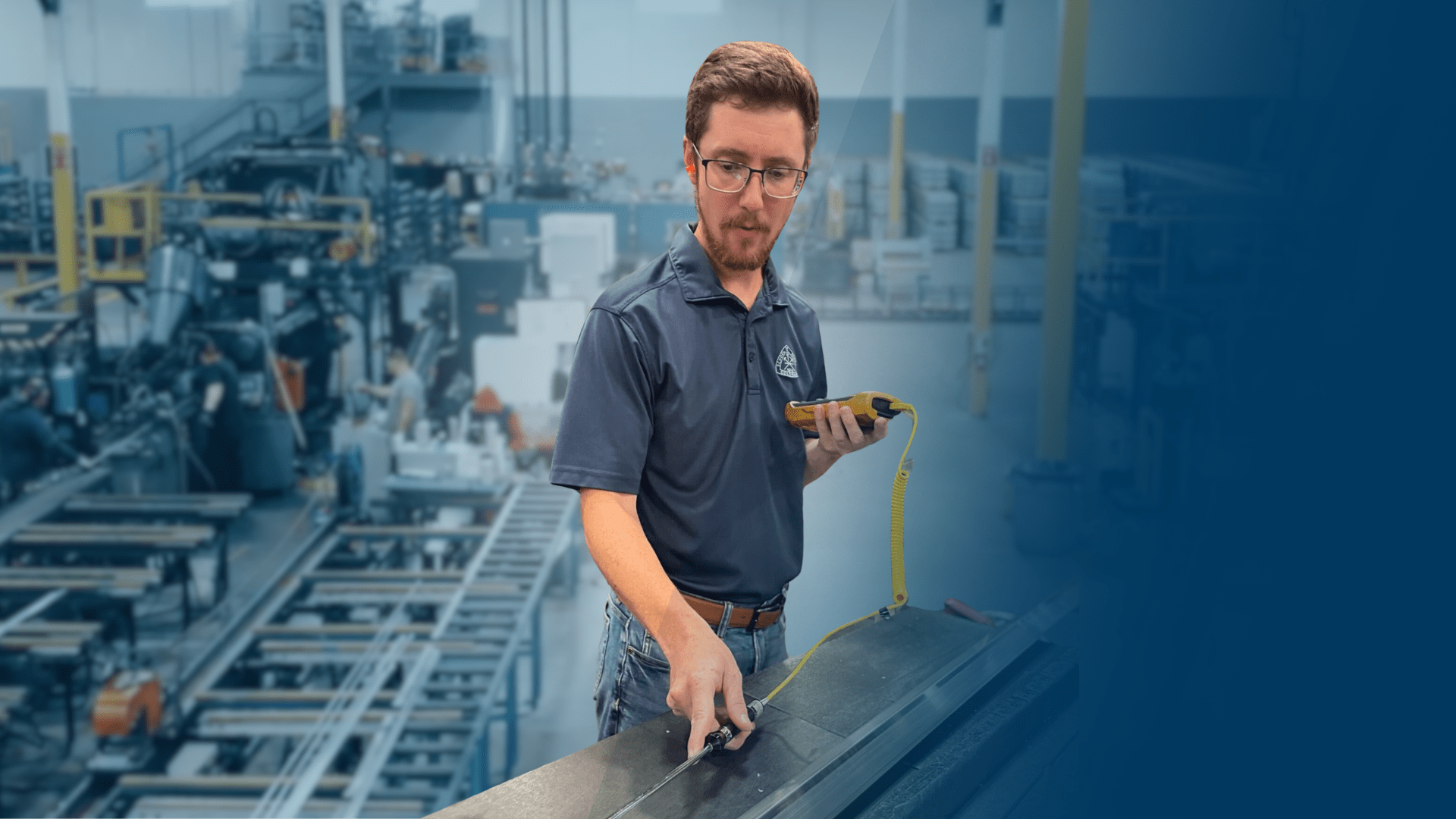Engineering school provides a solid foundation, but stepping into the real world often reveals complexities that were never covered in the classroom. The aluminum extrusion industry, with its dynamic processes and intricate details, is a prime example of this. Dylan Havener, Plant Manager at Profile Precision Extrusions, shares his insights from his first 18 months in the industry, highlighting the challenges and learning opportunities that new engineers often face.
Discovering the Complexity of Aluminum Extrusions
Dylan’s entry into the aluminum extrusion industry was met with surprises, particularly regarding the complexity and precision involved in producing custom aluminum extrusions. Despite a comprehensive engineering background, the nuances of the extrusion process were entirely new to him. The industry’s ability to produce highly complex profiles with remarkable dimensional accuracy is a testament to the advanced technology and expertise required.
Aluminum extrusion is far from a straightforward process. It involves managing a multitude of variables, including product design, die design, billet temperature, extrusion speed, press exit temperature, quench rate, and stretch length. Each factor plays a critical role in determining the quality and functionality of the final product. For Dylan, the realization of how these elements interact was an eye-opener, highlighting just how much there is to learn beyond theoretical concepts.
Navigating Challenges and Developing Problem-Solving Skills
One of the most significant challenges Dylan faced in his early months was understanding and troubleshooting the extrusion process. With so many factors influencing the outcome, maintaining focus on a single issue can be daunting. He quickly realized that problem-solving in the aluminum extrusion industry requires a methodical approach, with a strong emphasis on experience and hands-on learning.
Through time and perseverance, Dylan learned to navigate these challenges by breaking down the process into manageable components. He honed his problem-solving skills by observing, asking questions, and applying his engineering knowledge in practical situations. This approach allowed him to address issues more effectively and contributed to his growth as a leader within the aluminum extrusion company.
Bridging the Gap Between Theory and Practice
The transition from engineering school to the aluminum extrusion industry also revealed the gap between theoretical knowledge and practical application. While many engineering concepts—such as design, physics, metallurgy, thermodynamics, and mechanics of materials—are integral to the extrusion process, the real-world application often presents unexpected challenges.
Dylan found that while his academic background provided a strong foundation, the day-to-day realities of working in the aluminum extrusion industry required a deeper understanding of how these concepts interact in practice. Theoretical knowledge was invaluable, but it was the hands-on experience and the ability to adapt that truly enabled him to excel in his role.
Embracing New Technologies and Techniques
In his role at Profile Precision Extrusions, Dylan was quickly introduced to the latest technologies and techniques in the aluminum extrusion industry. Learning the nomenclature of the extrusion process, understanding the purpose of various tooling, and grasping the impact of different extrusion parameters were all critical to his success.
These new skills allowed Dylan to effectively communicate with his team, troubleshoot issues at the press, and contribute to the ongoing innovation at the company. The rapid adoption of these technologies not only enhanced his technical expertise but also positioned him as a key player in the company’s efforts to stay at the forefront of the aluminum extrusion industry.
Advice for New Engineers Entering the Aluminum Extrusion Industry
For engineers considering a career in the aluminum extrusion industry, Dylan offers valuable advice: take your time to learn the process, and don’t be discouraged by initial challenges. The complexity of the industry means that there is always something new to learn, and hands-on experience is crucial to mastering the intricacies of custom aluminum extrusions.
Dylan emphasizes the importance of seeking mentorship and guidance from experienced professionals. The aluminum extrusion industry offers numerous opportunities for growth, but success depends on a willingness to learn, adapt, and continuously improve. By leveraging their engineering background and building on real-world experience, new engineers can thrive in this exciting and rapidly evolving field.
Final Thoughts
The aluminum extrusion industry presents unique challenges and opportunities that go beyond what is taught in engineering school. For new engineers like Dylan Havener, the journey of learning and adapting to this complex industry has been both challenging and rewarding. By embracing the intricacies of custom aluminum extrusions and applying both theoretical and practical knowledge, engineers can contribute to the ongoing innovation and success of the aluminum extrusion industry.



